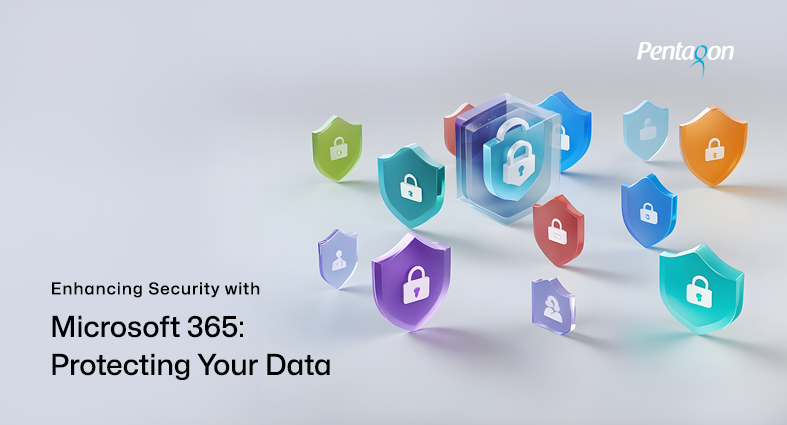Web hosting is the backbone of your online presence, the virtual foundation upon which your website thrives. As you embark on your digital journey, the critical question that arises is this: is managed or unmanaged hosting? This pivotal decision can shape the performance, security, and cost-efficiency of your online venture. The choice between managed and unmanaged hosting is akin to selecting the heart and soul of your digital operation. Managed hosting offers peace of mind with its expert support and hands-on maintenance, while unmanaged hosting grants the freedom of customization but demands technical prowess. To navigate this choice successfully, it’s vital to delve deep into the nuances of each option, assess your specific needs, and weigh the pros and cons. In this comprehensive guide, we’ll explore the intricacies of managed and unmanaged hosting, providing you with the insights and knowledge necessary to make an informed decision that aligns perfectly with your online ambitions. So, let’s embark on this journey of discovery and find out which hosting option is most suitable for you.
What Are Web Hosting Services?
Web hosting services form the very infrastructure that allows your website to be accessible on the internet. They are the digital landlords of cyberspace, providing the virtual real estate where your website’s files, data, and content reside. Essentially, web hosting services encompass a range of solutions and technologies that store your website’s data on powerful servers, making it accessible to anyone with an internet connection. This fundamental aspect of the online world is vital for businesses, bloggers, and anyone with a web presence. Whether you’re running a small personal blog or a large e-commerce platform, understanding web hosting services is crucial for ensuring your website’s performance, security, and overall success.
Why Your Hosting Choice Matters
Your choice of hosting service is not a mere technical decision; it holds profound implications for your online venture’s success. It’s akin to selecting the foundation for a building. Opting for the right hosting solution can significantly impact your website’s performance, security, and overall user experience. On one hand, a well-chosen hosting service ensures your site loads quickly, remains stable even during traffic spikes, and is resilient against cyber threats. On the other hand, a poor choice can lead to slow loading times, frequent downtimes, and vulnerabilities that hackers may exploit. Additionally, your hosting choice affects your website’s scalability, resource allocation, and even SEO rankings. Therefore, understanding the gravity of this decision and making an informed choice is paramount for anyone seeking a successful and reliable online presence.
Managed Hosting
Managed hosting is a comprehensive web hosting solution that takes the burden of server management off your shoulders, allowing you to focus solely on your website’s content and growth. This type of hosting is synonymous with convenience, as it offers a fully managed infrastructure that encompasses server setup, maintenance, and optimization. Managed hosting providers employ a team of experts to ensure your server runs smoothly, addressing any technical hiccups promptly. This hands-off approach liberates you from the complexities of server administration, enabling you to invest your time and resources in your website’s core objectives, such as content creation, user experience enhancement, and business expansion.
Enhanced Security and Monitoring
Managed hosting ensures your website’s security through proactive measures such as regular security updates, firewalls, and intrusion detection systems. Continuous monitoring keeps a vigilant eye on your server’s performance, promptly identifying and mitigating potential threats. This proactive approach not only protects your website and data but also instills confidence in your users, assuring them that their information is safe within your digital ecosystem.
Expert Technical Support
Managed hosting offers a lifeline in times of technical turmoil. With round-the-clock expert technical support, you have a team of professionals at your disposal to troubleshoot and resolve any issues that may arise. Whether it’s a sudden traffic surge, software glitch, or hardware malfunction, these experts are ready to provide timely solutions, ensuring minimal downtime and optimal performance.
Scalability and Flexibility
Scalability and flexibility are paramount in today’s fast-paced digital landscape. Managed hosting allows you to seamlessly scale your resources as your website grows, ensuring that it can handle increased traffic and demands without missing a beat. This flexibility empowers you to adapt to changing circumstances, whether it’s a sudden spike in visitors or the integration of new features, all without the hassle of managing the underlying infrastructure.
Who Should Opt for Managed Hosting?
Managed hosting is tailored for individuals and businesses seeking a hassle-free hosting experience. It’s particularly well-suited for those who lack the technical expertise or time to manage server administration intricacies. Content creators, small to medium-sized businesses, and e-commerce ventures can benefit greatly from managed hosting, as it allows them to focus on their core activities while enjoying the security, support, and scalability that this hosting option provides. Moreover, websites that prioritize uptime, performance, and data security should seriously consider managed hosting to ensure a robust and reliable online presence.
Unmanaged Hosting
Unmanaged hosting represents a fascinating paradigm in the web hosting landscape. Unlike its managed counterpart, unmanaged hosting offers a unique blend of freedom and responsibility. The freedom it provides is exemplified by the unparalleled control and customization options it places at your fingertips. With unmanaged hosting, you become the master of your server, making it an ideal choice for tech-savvy individuals and businesses seeking complete autonomy over their hosting environment. However, this independence comes with its own set of responsibilities and considerations. From securing and configuring the server to handling software updates and troubleshooting, unmanaged hosting requires a higher level of technical expertise. Additionally, cost considerations play a pivotal role as you bear the responsibility for server maintenance and management.
Full Control and Customization
Unmanaged hosting’s allure lies in its promise of full control and unparalleled customization. When you opt for unmanaged hosting, you hold the reins to your server’s destiny, allowing you to tailor every aspect of its configuration to suit your unique requirements. From selecting the operating system to fine-tuning server settings, you have the freedom to create an environment that aligns precisely with your website’s needs. This level of customization can be a game-changer for businesses with specific software dependencies or performance demands. However, this autonomy comes with a caveat: it demands a strong technical background and a commitment to ongoing server management. Balancing the benefits of customization with the responsibility of server maintenance is essential when considering unmanaged hosting.
Cost Considerations
While unmanaged hosting offers unparalleled freedom and control, it’s essential to factor in the associated cost considerations. On the surface, unmanaged hosting may appear cost-effective since you aren’t paying for managed services. Unmanaged hosting requires you to assume full responsibility for server maintenance, security, and troubleshooting. This means investing time and potentially hiring skilled staff to handle these tasks effectively. The cost of these resources, coupled with potential downtime due to technical issues, can offset the initial savings. Therefore, businesses and individuals considering unmanaged hosting must weigh the financial implications carefully. It’s a cost-effective choice for those with the necessary technical expertise but may become expensive if additional resources are needed to manage the server effectively.
Is Unmanaged Hosting Right for You?
Unmanaged hosting, with its promise of freedom and control, can be the perfect choice for certain individuals and businesses. If you possess the technical expertise and are willing to invest time and effort in server management, unmanaged hosting can offer a tailored hosting experience like no other. However, it’s not a one-size-fits-all solution. Your decision should hinge on your comfort level with server administration, your specific hosting requirements, and your willingness to take on the associated responsibilities.
Key Differences: Managed vs. Unmanaged Hosting
When deciding between managed and unmanaged hosting, understanding the key disparities is paramount. Control and autonomy significantly set them apart. Managed hosting offers a streamlined experience, where your hosting provider takes charge of server management, leaving you with more time to focus on your website’s content and growth. Conversely, unmanaged hosting provides absolute autonomy, allowing you to fine-tune server settings, install custom software, and manage your server independently. This control comes with the caveat of requiring technical expertise, which leads us to our next crucial difference.
Control and Autonomy
Control and autonomy are central aspects differentiating managed and unmanaged hosting. In managed hosting, you relinquish some control as your hosting provider oversees server management tasks, ensuring optimal performance and security. This hands-off approach can be beneficial for those who prioritize ease of use and support. In contrast, unmanaged hosting puts you in the driver’s seat, granting full control over server configurations and software installations. While this freedom is empowering, it necessitates a higher level of technical expertise to handle server maintenance, troubleshoot issues, and secure your hosting environment effectively. Therefore, the level of control you desire should align with your technical proficiency when choosing between these hosting options.
Technical Expertise Required
A pivotal distinction between managed and unmanaged hosting is the level of technical expertise demanded. Managed hosting minimizes your involvement in server management, making it accessible to individuals with limited technical knowledge. Your hosting provider handles tasks like updates, security patches, and backups, ensuring a hassle-free experience. In contrast, unmanaged hosting places the onus on you to navigate the intricate world of server administration. To excel in this environment, a solid understanding of server configurations, software installations, and troubleshooting is imperative. While unmanaged hosting offers unparalleled customization, it’s a choice best suited for those who possess or are willing to acquire advanced technical skills to maintain a secure and high-performing server.
Cost Comparison
Cost considerations play a vital role in the managed vs. unmanaged hosting decision. Managed hosting typically comes at a higher price point due to the added support and convenience it offers. The investment, however, translates into peace of mind, as you benefit from expert assistance and reduced downtime. On the other hand, unmanaged hosting tends to be more budget-friendly upfront, appealing to those with cost-conscious priorities. Yet, it’s important to note that cost savings can diminish if you factor in the expenses associated with acquiring and maintaining the necessary technical expertise. When assessing your hosting budget, consider not only the initial price but also the long-term value and potential hidden costs associated with your hosting choice.
Security and Reliability
Security and reliability are pivotal elements differentiating managed and unmanaged hosting. Managed hosting providers prioritize security by implementing robust measures such as regular updates, firewall protection, and malware scanning. This proactive approach minimizes security risks, making it an attractive option for those who prioritize a secure online presence. Unmanaged hosting, while offering customization freedom, places the responsibility of security squarely on your shoulders. Ensuring the safety of your server demands vigilant monitoring, timely updates, and comprehensive security measures. Reliability is also a factor, as managed hosting often boasts higher uptime rates due to professional management, whereas unmanaged hosting’s uptime hinges on your ability to maintain and troubleshoot the server effectively. Your choice should align with your security and reliability requirements and your confidence in managing them.
Making Your Decision
Assessing your decision between managed and unmanaged hosting necessitates a deep dive into your unique requirements and objectives. Your journey begins by recognizing that no one-size-fits-all solution exists; it’s all about aligning your hosting choice with your specific goals. It involves an intricate balancing act between control, technical proficiency, and cost considerations. Armed with this understanding, you’ll embark on a path where your website’s scalability, security, and performance are optimized. In this section, we guide you through the pivotal factors to help you make an educated choice and ensure that your web hosting decision is not just a preference but a strategic move that caters to your long-term digital success.
Factors to Consider
- Website Type: The nature of your website, whether it’s a personal blog, e-commerce platform, or corporate site, greatly influences your hosting requirements.
- Traffic Volume: Analyze your expected traffic levels. If you anticipate high traffic spikes, scalability becomes crucial.
- Technical Expertise: Assess your team’s technical proficiency. Managed hosting is ideal if you lack the in-house expertise for server management.
- Budget Constraints: Determine your budget constraints. Managed hosting often comes at a higher price but with convenience, while unmanaged hosting offers cost savings but requires more technical involvement.
- Security Needs: Security is paramount. Consider the sensitivity of your data and the level of security you require.
- Growth Plans: Think about your long-term growth plans; your hosting choice should support your future expansion.
- Compliance Requirements: Certain industries require specific compliance standards; ensure your hosting aligns with these standards.
Conclusion
The choice between managed and unmanaged hosting services hinges on your unique needs and technical acumen. Managed hosting offers a secure, hands-off solution ideal for businesses seeking expert support, scalability, and peace of mind, while unmanaged hosting empowers the tech-savvy with unparalleled control and cost-effectiveness. The decision ultimately rests on your familiarity with server management, budget considerations, and your specific project requirements. Take time to evaluate your hosting needs, assessing factors like scalability, security, and customization. Consider real-world case studies to inform your choice. Whether you opt for the nurturing embrace of managed hosting or the limitless potential of unmanaged hosting, remember that your decision should align with your objectives and expertise, ensuring a seamless and successful web hosting journey tailored to your unique digital aspirations. Ready to make an informed decision about your web hosting? Explore our comprehensive web hosting services to find the perfect fit for your needs. Contact our experts today for personalized guidance and recommendations!
services
Feel free to send us a message.
Please, share your thoughts, and let's chat over a cup of tea.




















